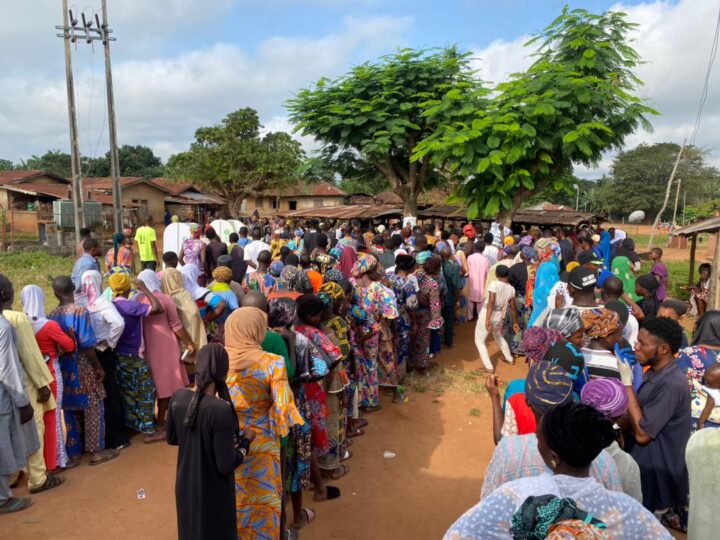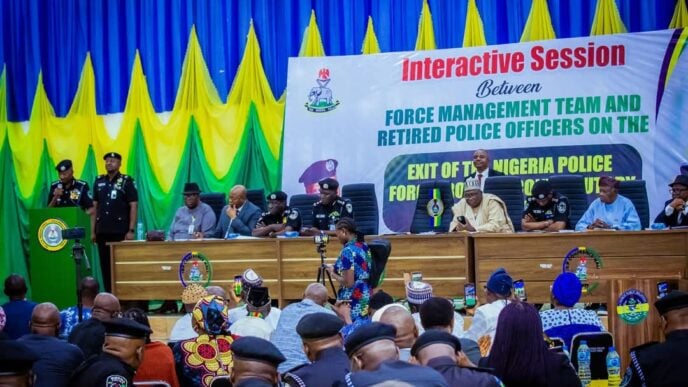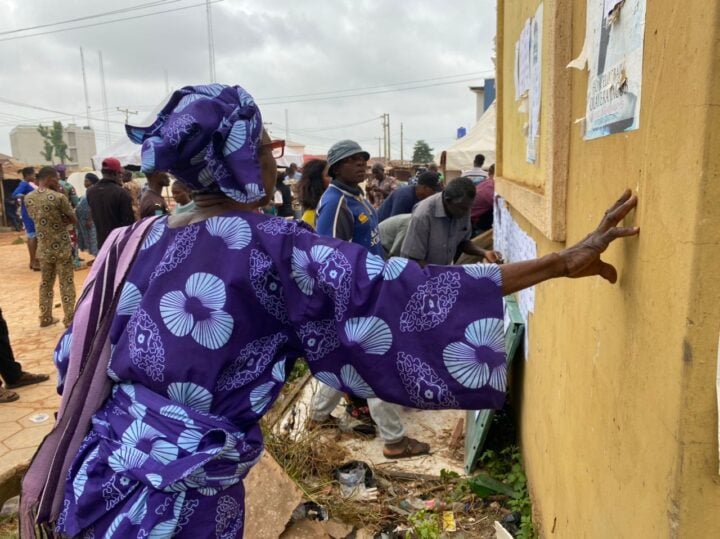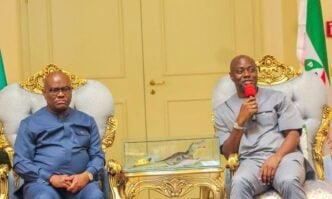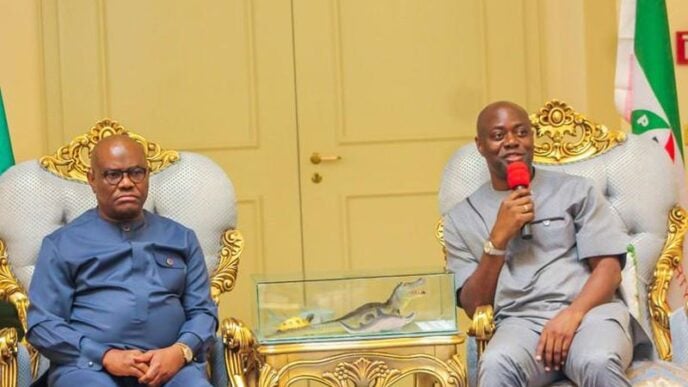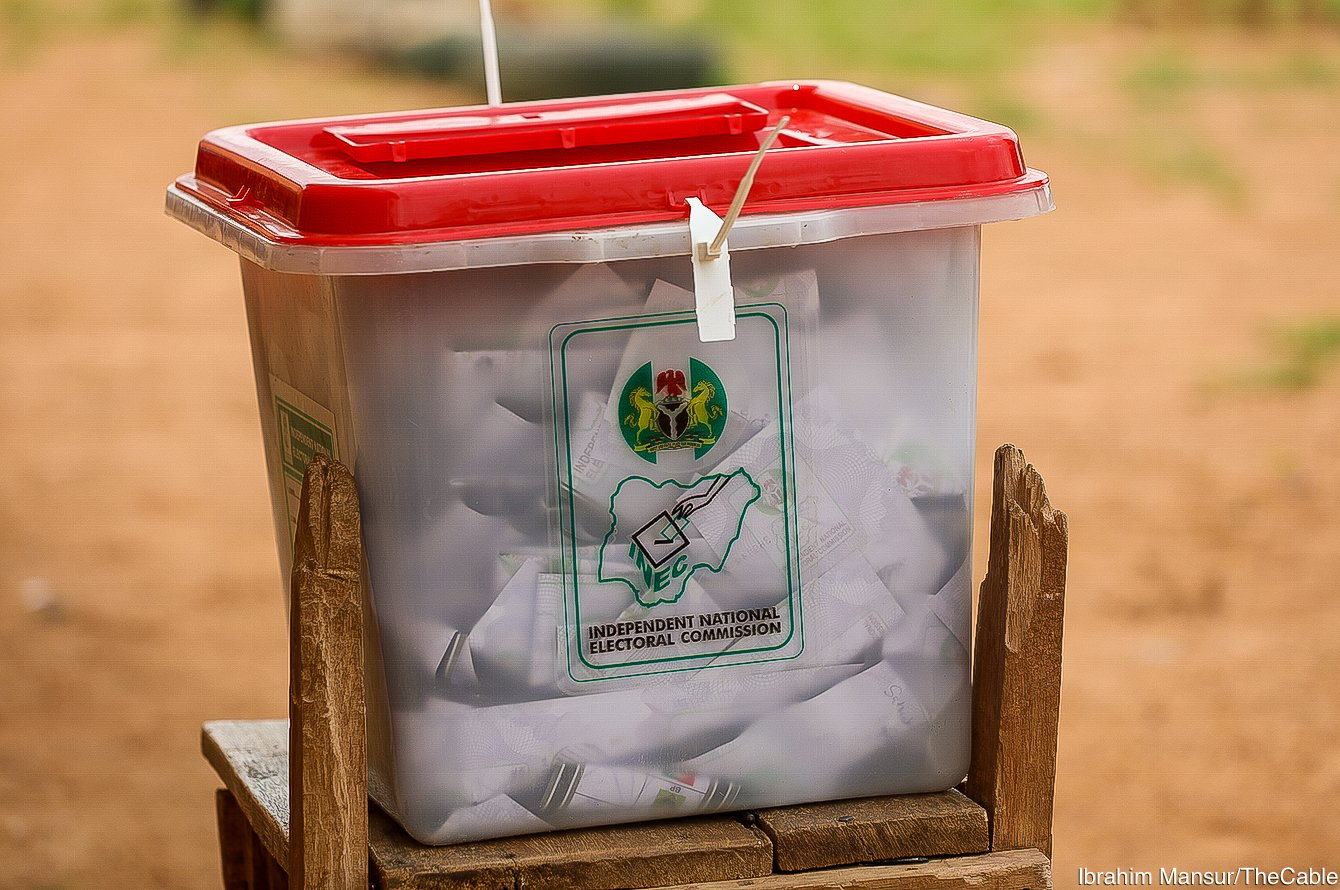A file photo of Nigerians waiting to vote during an election
BY VICTOR TERHEMBA
In the common sense of democratic culture, political parties serve as vehicles for policy articulation, citizen representation and electoral competition in order to have access to and control government machinery. But in Nigeria’s post-1999 democratic experiment, the concept of “party supremacy” has mutated into a dangerous orthodoxy that threatens national cohesion, institutional integrity and democratic growth. At the heart of this distortion lies an unrelenting loyalty—not to the constitution or the people—but to the party as an entity above scrutiny, above reproach, and disturbingly, above the state itself.
The phrase “party supremacy” gained popular currency during the administration of President Olusegun Obasanjo. It was often used to justify executive interference in legislative matters and to enforce conformity within the ruling People’s Democratic Party (PDP). Obasanjo himself deployed party supremacy as a disciplinary cudgel, notably in the impeachment of governors and legislative leaders who deviated from the party line. While parties around the world maintain internal discipline, the Nigerian iteration enforces obedience to a political hierarchy, often at the expense of due process and institutional independence.
A particularly revealing episode of this attitude emerged in 2014 when then-Governor of Kaduna state, Nasir el-Rufai, during an interview on Channels TV, proudly declared that the job of the opposition All Progressives Congress (APC) was to oppose everything the Goodluck Jonathan administration did—including things done well. This brazen admission revealed an entrenched zero-sum attitude to politics: governance was not a contest of ideas but a relentless pursuit of power, stripped of ideological conviction or policy depth.
Advertisement
Political parties, ideally, should be platforms for advancing developmental policies and holding governments accountable. Instead, they have been reduced to gatekeepers of access to state resources. Elections are not seen as contests of policy alternatives but as violent scrambles for rentier privileges. Party supporters are incentivised not by ideology but by proximity to power. Loyalty is rewarded with political appointments—special advisers, senior special assistants, and aides of various stripes—regardless of competence or merit.
This culture of blind loyalty to party lines is most vividly illustrated in the shifting moral positions of party loyalists. A policy condemned by the opposition today becomes laudable once the same party assumes power. The same individuals who once denounced fuel subsidy removals as anti-people now justify them under their party’s watch. This political amnesia erodes public trust and entrenches cynicism in the democratic process.
The concept of party supremacy has also weakened Nigeria’s legislature. The national assembly, which should function as a robust check on executive overreach, has largely become an appendage of the presidency. Lawmakers, especially those from the ruling party, are hesitant to critique presidential actions or policies, lest they be labelled disloyal and risk exclusion from patronage networks. This subservience undermines the doctrine of separation of powers, enshrined in the 1999 constitution.
Advertisement
President Bola Ahmed Tinubu’s recent appointments of all APC state chairmen into federal boards and agencies underscore this trend. These positions, meant to be occupied by competent technocrats or sectoral experts, have become tools of political compensation. While it is not unusual for ruling parties to reward loyalty, such wholesale distribution of public roles to party operatives disregards meritocracy and reduces governance to partisan spoil-sharing.
From a historical lens, Nigeria’s First Republic (1960-1966) also grappled with party dominance, but it was more ideologically grounded. The Action Group (AG), Northern People’s Congress (NPC), and National Council of Nigeria and the Cameroons (NCNC) at least articulated distinct visions for the country. Today’s parties are largely indistinguishable beyond their branding; they lack ideological anchorage and are often vehicles for political convenience rather than national service.
The broader implication of party supremacy is the suffocation of democracy itself. When loyalty to a political party overrides allegiance to the nation, democratic values such as accountability, transparency, and inclusive governance suffer. Political debates become echo chambers, dissent is silenced, and innovation in policymaking is stifled. Democracy thrives on competition, critique, and the pluralism of ideas, not on sycophantic conformity.
Furthermore, this culture of party-first loyalty fosters impunity. With party protection, public officials are shielded from prosecution or public scrutiny. The lines between party funds and public coffers blur. Oversight institutions are weakened, and electoral accountability diminishes. It is no coincidence that corruption has remained intractable despite changes in government; the rot is systemic and shielded by the very structures meant to check it.
Advertisement
If Nigeria is to reverse its democratic decline, the political class must abandon the false dichotomy of party versus country. Loyalty to the constitution and the people must take precedence. Political appointments should reflect competence and national interest, not party allegiance. The national assembly must reclaim its independence, and civil society must insist on accountability from all arms of government, regardless of partisan affiliations.
The current trajectory is unsustainable. A democracy where the party eclipses the state is not a democracy—it is a cartel with ballot boxes. Until we recognise this and act accordingly, the promise of Nigeria’s democracy will remain perpetually deferred.
Victor Terhemba is a development practitioner and democracy advocate. He can be reached via [email protected] or on X @Victor_Terhemba.
Advertisement
Views expressed by contributors are strictly personal and not of TheCable.
